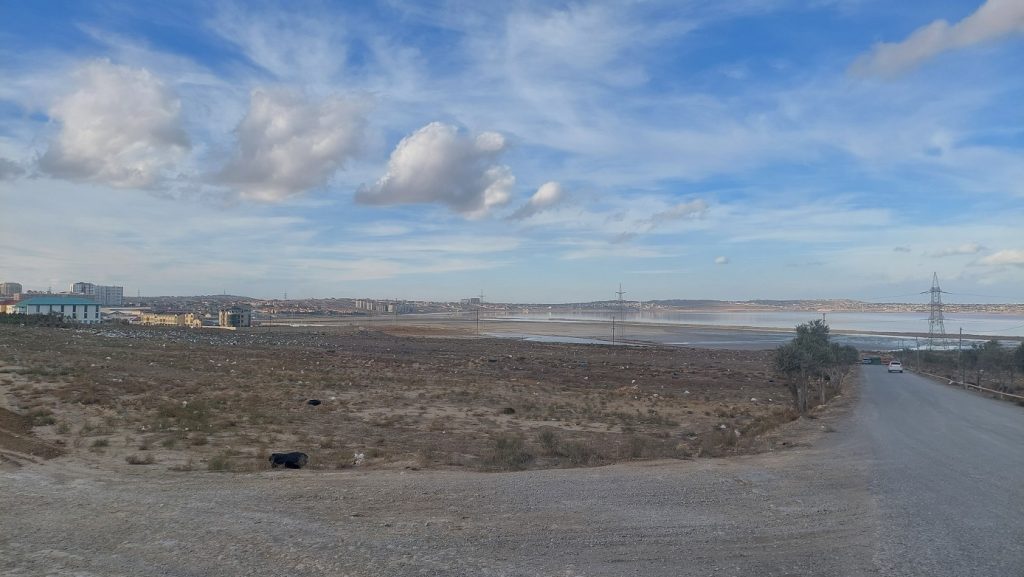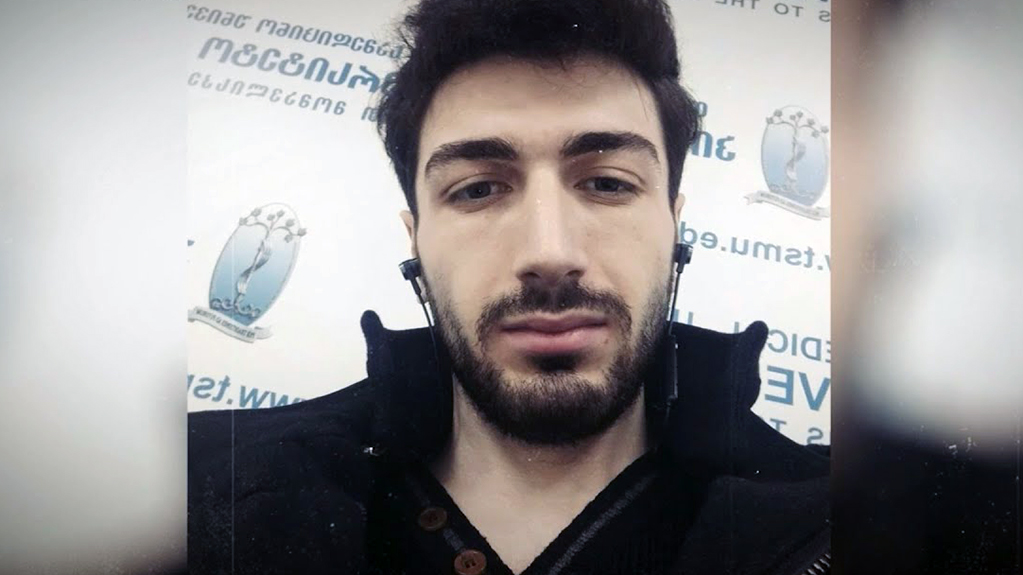A trip to the "Alumni House," whose address even Google Maps doesn't know
Graduates of boarding schools and orphanages
This is the “Alumni House” located in Masazir settlement of Absheron district, not far from Baku, where young people deprived of parental care live, who grew up in various boarding schools and had to leave them after reaching the age of 18.
The complex is located very far from residential areas. The view from the building is an empty space stretching across the horizon. Even Google Maps does not offer a route to this address; one must ask locals.

- Ivanishvili at No. 8 on world list of “destroyers” – POLITICO’s annual ranking
- Armenian trucks idle in Upper Lars. Russia’s response to the CSTO boycott?
- Another journalist detained in Azerbaijan
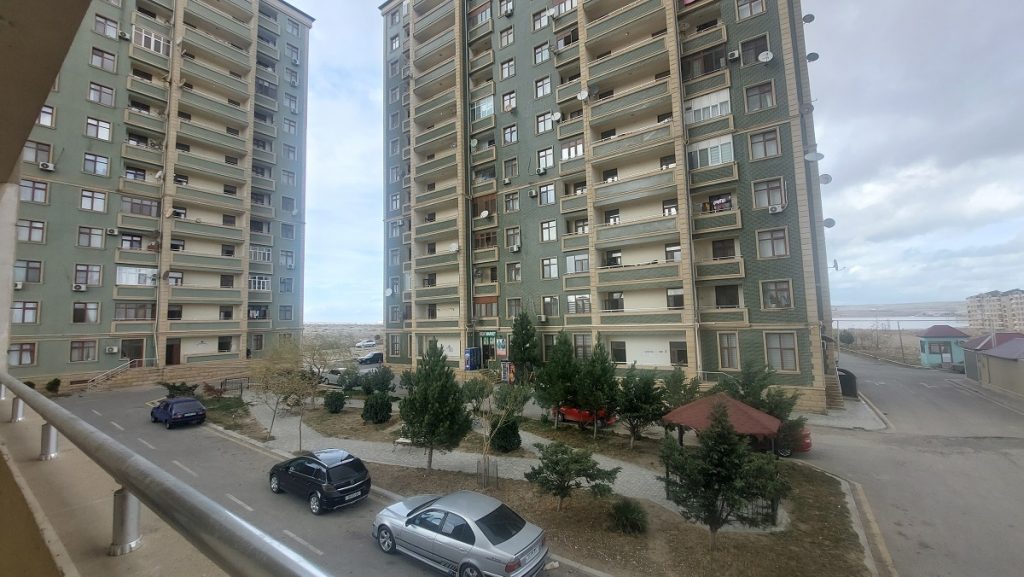
Walking into the courtyard of the building, I meet two women with school backpacks on their shoulders and three children with them. They are taking the children to school. As soon as the women recognize that I am a journalist, they start talking about the township’s problems:
“After the rain last week, the sewage system overflowed, the basement of the building is full of water. The heating system has also been out of order for a long time. Finally we gathered with neighbors, 10-15 people, and told the commandant: “Either solve the problems or we will protest in front of the presidential administration”. That same night they opened the door of the boiler house and said they were repairing it. We will see when it will start heating, we are dying of cold. The water from the basement was also pumped out, they promised that the sewage line would be renewed. We are waiting.”
Seeing that the children are getting farther away and her companion is not waiting for her, Nargiz Guniyeva, who related the story, hurries after them.
The first building of the residential complex “Alumni House” was commissioned in 2015, the second in 2016 and the third in 2017. First Lady of the country Mehriban Aliyeva attended the opening ceremony.
The complex consists of three buildings, each with 120 apartments and 13 floors. It is designed for 600 residents. But at this moment about 370 residents live in the complex.
This is the first and so far the only residential complex in Azerbaijan built for orphans.

As I pass the first house, I see the boiler house that is supposed to provide heat to this complex. The door seems to have been left open since the night before. Pipes and electrical wires are stacked sideways in front of the door. A man comes out of the boiler room who introduces himself as the receptionist.
“The repairs are still in progress, so the door is open. The heating system will be fixed soon,” he says and walks back into the boiler room.
I walk past the structure designated as a “Kindergarten.” But there are no children or teachers inside. I learn from the residents that the kindergarten has not been open a single day since the opening of the first building.
“We have repeatedly asked when the kindergarten will open, because there are kids in almost every house. But there is no one to answer,” says a resident.
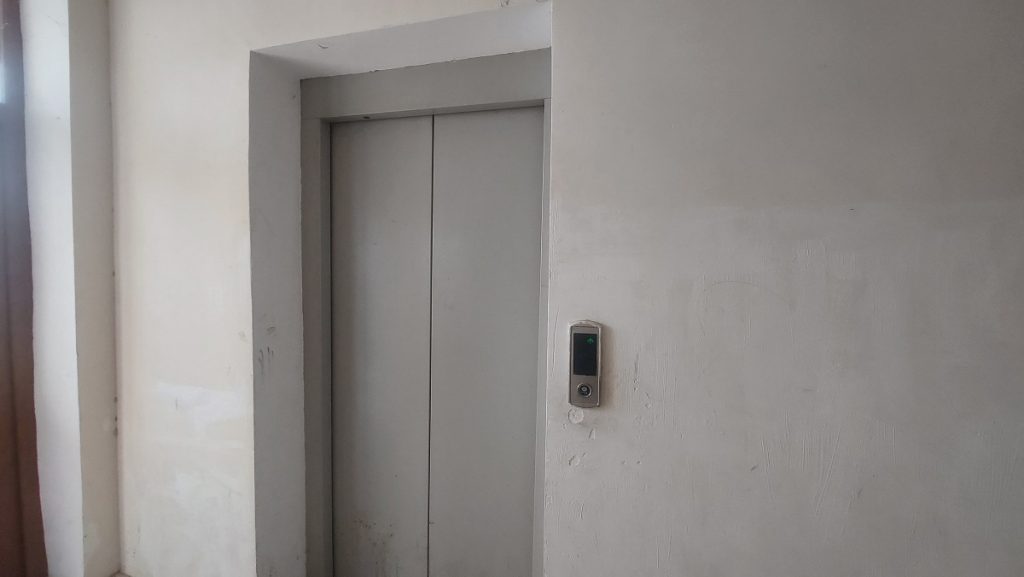
No one else can be seen in the courtyard of the building. I enter one of the buildings. It turns out that the elevator of the 13-story building does not work. Like the tenants, I have to climb the stairs.
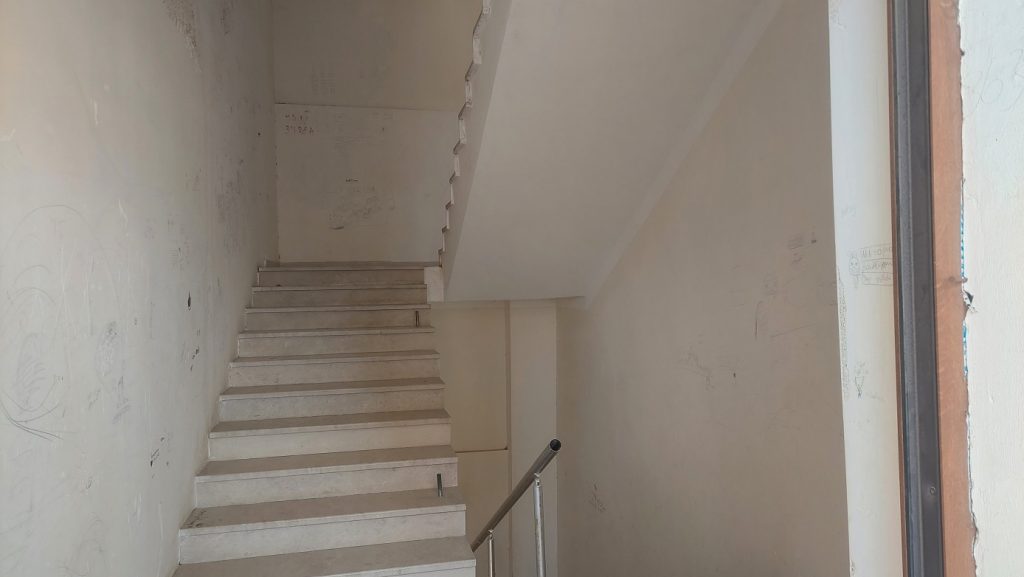
There are no stair railings on most floors. The marble-like tread is slippery. I try to walk carefully so I don’t fall.
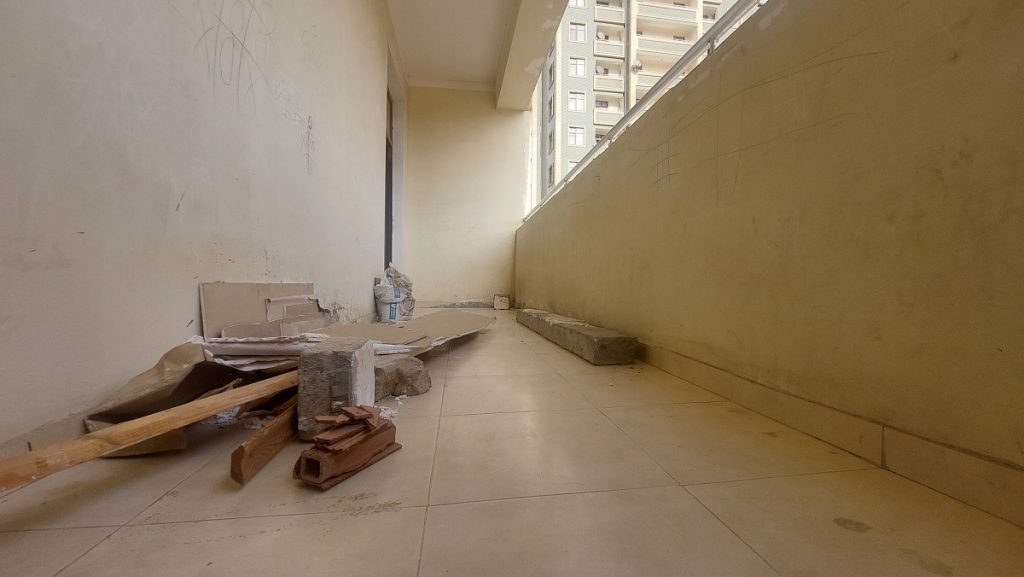
Pieces of wood and cardboard are piled on the balconies of almost every floor. This makes it difficult to move around.
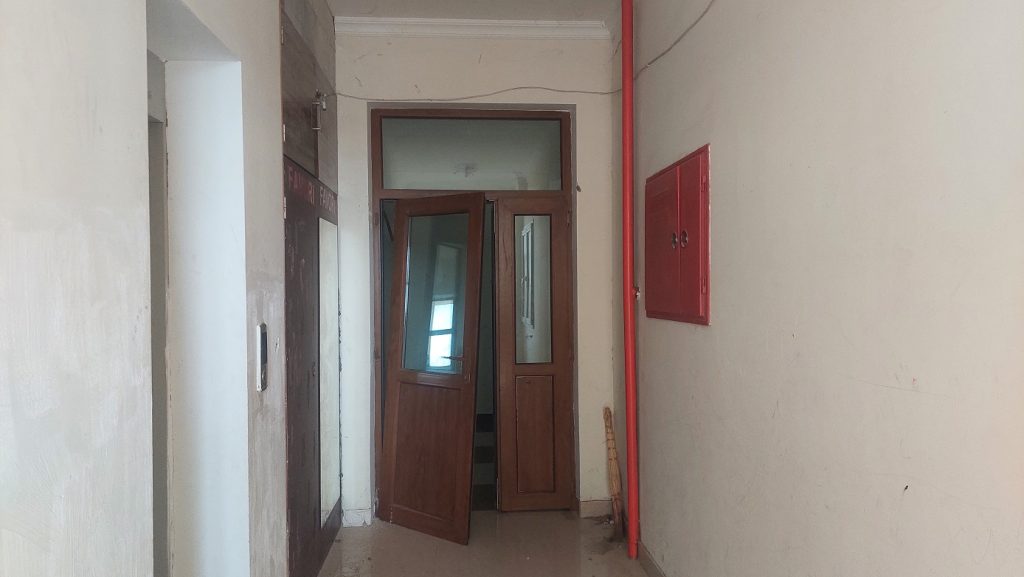
In short, the beautiful, tidy appearance of the residential complex from the outside is belied by a mess inside.
I meet Sevda Abbasova on one of the floors. From conversation with her, it becomes clear that one of the main problems worrying the residents of the “Alumni House” is the issue of documentation. According to her, the apartments were distributed to the residents on the basis of an agreement, but no official deed of sale was given to anyone.
Sevda has been living in the complex with her three young children since 2019. Her husband Sahib Abasov is a graduate of boarding school No. 10 located in Sabunchu district. Although he left the boarding school where he grew up in 2002, he remained homeless for many years.
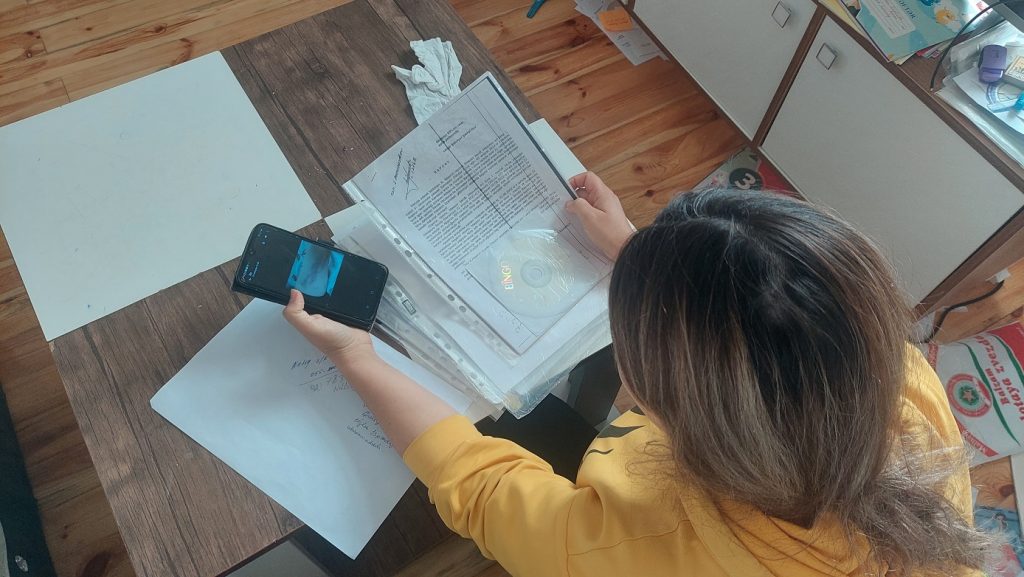
Sevda and Sahib got married in 2014 and agonized over rent for five years. To own an apartment in the complex, he had to collect documents for a long time. Finally, in December 2019, they were able to move into Alumni House.
Sevda says that it is impossible to privatize the apartments because they do not have an official bill of sale. That is, those who live in the complex are just tenants of their apartments, not owners. As Sevda says, they live in fear of being evicted at any moment.
When I was in the complex, I spoke with a representative of the building administration, who did not want to give his name. According to him, there are no plans to issue a bill of sale for the apartments. But fears that someone will be evicted from the apartment are also unfounded.
“If such a thing happens, the tenant of the apartment can restore the right to live in the apartment through the court,” he said.
Walking up the stairs, almost every resident I meet complains about the same problems:
“We have been talking about the problems of the heating system and the sewage system for so many months, and only now we’ve come to our senses. Do we have to die of cold to be heard?”
Another resident draws attention to the problem of transportation:
“Only bus number 525 goes from here. We have to walk 15 minutes to the bus stop. We walk to the bus stop, and then we have to wait for half an hour. At least the number of routes should be increased. Such a large settlement has only one hope – route number 525. The buses on this line also work as they want. When the weather is rainy and snowy, a sensible person will not leave the house, as there will be no bus.”

Going down to the fourth floor, I meet an employee of Azerishig OJSC (electricity distribution company) checking the meters. He calculates the debt of each apartment and hangs a receipt on the door. He says it’s wasted labor:
“I leave the receipt at the door, I leave. Nobody pays. Everyone has a debt of 200-300 manats [about $120-180] for electricity. As soon as I open my mouth, they say we will complain. I don’t know what to answer. I don’t care. Let them sort it out themselves,” he says, attaching the last check in his hand to the door of one of the apartments.
He goes upstairs, and I leave the building and head for the public transportation stop. And in my head I think about what many of the residents I’ve talked to today about unemployment have been telling me. From what I’ve heard from them, they can’t find work, moonlighting in temporary jobs to cover their daily expenses. “That’s probably why they can’t pay their utilities,” I thought.
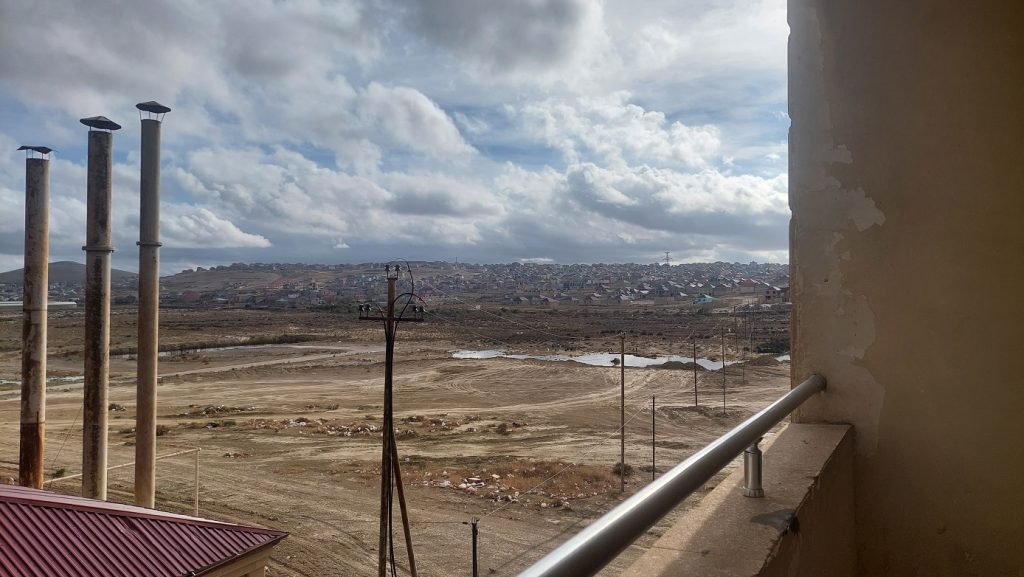
As I walk out of the courtyard of the complex, I see Yadigar sitting in a wheelchair talking to his neighbor. I wonder how he gets up and down the stairs in a building without an elevator. Turns out his neighbors pick him up along with his wheelchair, carry him down the stairs and carry him back upstairs.
“The state took care of us for 18 years and finally gave us a house. We want to forget the past, the time when we were in need, and to stand on our own feet, but we can’t. To solve even the smallest communal problems, we have to ask the state again and say that we are graduates of orphanages. It is impossible to get out of the orphanage atmosphere,” Yadigar said, shaking his head.
